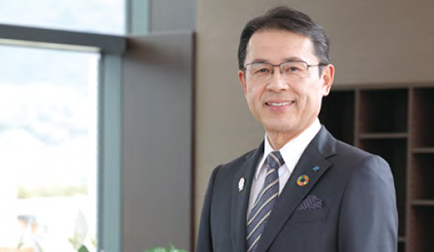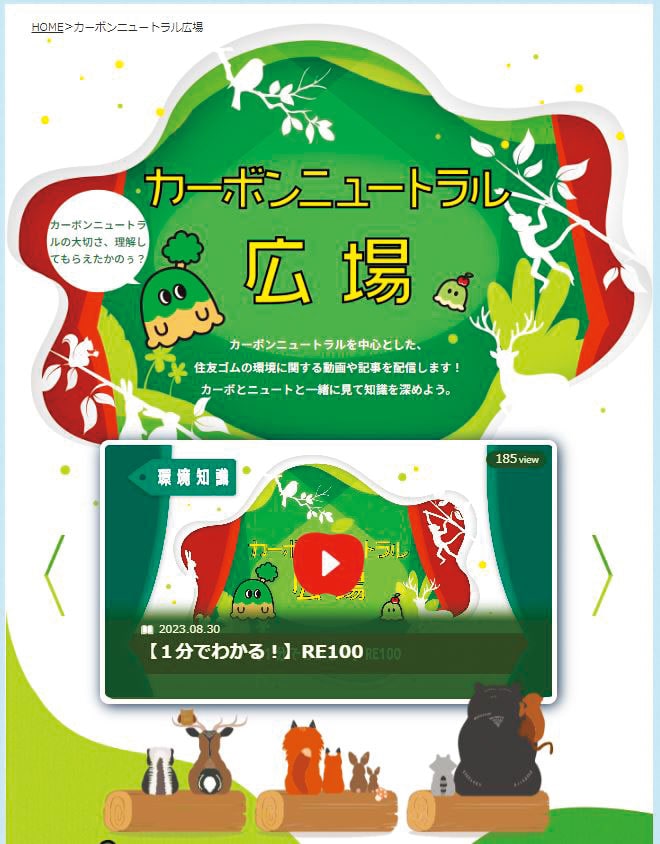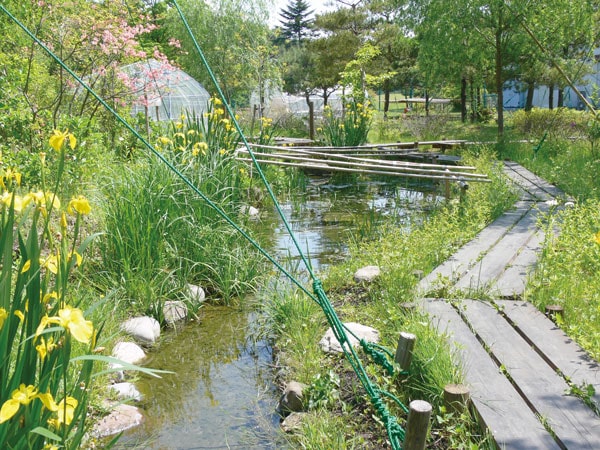- TOP COMMITMENT
-
-
Sustainability Management Messages
- Sustainability Management Messages Top
- A Message from the Executive Director in Charge of Sustainability
- A Message from the Executive Director in Charge of Finance
- Roundtable Talk among Officers in Charge of Technology and General Managers of Business HQs
- A Message from the Executive Officer in Charge of Human Resources
- Roundtable Talk on DE&I
- Outside Directors Roundtable Talk
- Tire Business
- Sports Business
- Industrial Products Business
-
Sustainability Management Messages
-
-
Sumitomo Rubber Group's Sustainability Management
- Sustainability Vision and Management Structure
- Creating Value throughout the Sumitomo Rubber Group and the Six Capitals That Support It
- Value Chain, External Environment, Risks and Opportunities
- Material Issues (Materiality)
- Long-Term Sustainability Policy: “Driving Our Future Challenge 2050”
- Toward Achieving SDGs through Business Activities
-
Sumitomo Rubber Group's Sustainability Management
-
-
Environment
- Environment Top
- Environmental Management System
- Environmental Accounting
- Responding to Climate Change (TCFD)
- Carbon Neutrality
- Resource Circulation and Sustainable Raw Materials
- Preserving Biodiversity (TNFD)
- Initiatives for the Conservation of Endangered Animals and Plants
- Environmental Conservation Efforts through Greening Activities
- Water Resource Conservation
- Waste Reduction
-
Environment
-
-
Social
- Social Top
- Sumitomo Rubber Group’s Human Capital Management
- Promoting Diversity, Equity & Inclusion
- Three Types of Human Resources Required to Support Consistent Growth
- Implementing Measures to Enhance the Performance of Human Resources
- Occupational Safety & Health
- Promoting Healthy Management
- Initiatives to Ensure Respect for Human Rights
- Supply Chain Management
- Stakeholder Engagement
- Social Contribution Activities
- Concepts on Quality Management and the Development of Products, Technologies and Services
-
Social



















































